Subscriber Benefit
As a subscriber you can listen to articles at work, in the car, or while you work out. Subscribe NowAs the temperatures warm and the days lengthen, law students arrive at law firms to get experience in legal work. They see how the material they have learned applies to the real world as they research and write briefs, observe depositions, meet clients and attend court hearings. Interspersed with work, they get to know their firm colleagues by socializing at cookouts, dinners and trips to the local ballpark.
These summer programs are really extended job interviews. Law firms take a close look at the candidates to determine if they can do quality legal work and fit with the office’s culture, while the students are determining whether they enjoy practicing at that firm and would want to work there after graduation.
Law firms are again welcoming summer associates to in-person work after the COVID-19 pandemic either forced many programs to shift to a virtual format or be canceled in 2020. Even as managing partners in many firms institute new policies this year that will give attorneys the flexibility to work remotely, summer programs seem to be returning to their pre-pandemic models.
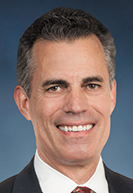
Christopher Braun, managing partner of Plews Shadley Racher & Braun LLP in Indianapolis, said the return to the traditional summer program has been driven by the firm as well as the students.
The partners and associates at Plews Shadley think bringing students into the office to collaborate on a project, observe how a document gets crafted and polished, or brainstorm with someone is “absolutely, critically important.” Meanwhile, students are “chomping at the bit” to get back to a sense of normalcy. Recently, Plews Shadley’s two summer associates were pulled into a document review process that involved climbing into the attic of a 100-year-old house and pulling boxes of old papers. The students along with others from the firm all wore gloves and boots as they worked through the dusty cartons.
“We want you to work like you would as a young associate,” Braun said. “That may mean going to hearings and participating in depositions, to doing research and writing, to being on conference calls with clients. … I think it’s a bit of a disservice to wine and dine, we’ll play golf and go to baseball games every day. That’s not realistic.”
Data from Indiana University Maurer School of Law shows summer associate employment actually increased last year. A full 58% of the students who reported getting jobs were working in summer programs at law firms, compared to 48.9% in the summer of 2019. This summer, the amount has dropped to 47.2%, with another 17%, a higher rate than in years past, working in the public interest sector.
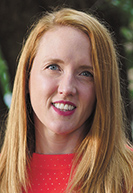
The pandemic pushed many interviews from August 2020 to February 2021. Anne McFadden, interim assistant dean of student services at IU Maurer, noted students were still able to find work last summer. Many alumni provided last-minute jobs, and state government agencies — particularly the Indiana Attorney General’s Office — took on more students.
While students are getting hands-on experience in law school, McFadden said summer programs are still invaluable. Students are immersed in legal work and can learn what kind of law they want to practice and what clients they want to serve.
“It’s a much more intensive experience than anything we can offer at the law school during the school year, so I always try to get them to take advantage of it,” McFadden said.
Indiana University Robert H. McKinney School of Law did not have any summer employment data available. Notre Dame Law School did not record any changes.
“We did not observe a disruption in summer associate positions, at least in terms of our students’ outcomes,” Vincent Versagli, director of Notre Dame Law School’s Career Development Office, said in a statement. “While some firms were more conservative with their hiring for this summer (particularly in certain markets), the percentage of our second-year students securing summer associate positions held steady with the previous two years (2019 and 2020).”
Trending toward laterals
Law firms have used summer programs as a pipeline of future attorneys into their offices. As Peter Doggett, executive director of bar review programs for Kaplan, said, the 10-week experience grooms students, teaching them the culture of the firm and how to be a lawyer there.
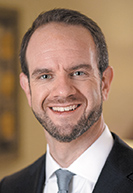
However, that pipeline may be narrowing.
According to the National Association for Law Placement, the average summer program class size declined to 11 in 2020, a dip from 13 the year before. However, the organization noted class sizes have been trending downward, particularly for the largest law firms of 700 lawyers or more. In 2016, these firms recorded an average class of 22 associates, but by 2020 that had slumped to 14.
In the Louisville, Kentucky, office of Stoll Keenon Ogden PLLC, Jeffrey Calabrese, chair of the Personnel Committee, pointed to market forces.
“I think most law firms are reducing the summer associate program in part because there are only so many first-year associates a law firm needs,” Calabrese said, adding that firms do not want to over-hire because they do not know what the demand will be. “They tend to be pretty circumspect about putting a young attorney’s career sort of in the balance if they’re not sure it’s going to have the kind of work, the kind of career that everybody would like them to have.”
Stoll Keenon typically brings eight or nine summer associates to work in either the Lexington, Kentucky, Louisville or Evansville offices. This summer that was reduced to six, although Calabrese explained that was partly the result of uncertainty over whether COVID-19 would be under control enough to start returning to pre-pandemic normal.
Still, the firm has been evaluating the summer program for the last few years to determine if bringing students on board is beneficial. Stoll Keenon, like many law firms, is focused on the expense of recruiting summer associates and whether they are getting an adequate return on their investment, Calabrese said, especially because laterals “can be very, very cost effective” compared to the associates hired from the summer program.
Calabrese does not foresee summer programs being eliminated because firms will want to be in a position to court top law students. But the relationships may start earlier, perhaps even before the student begins studying law, and include more formalized commitments.
For laterals, Calabrese said the pandemic accelerated firms turning from summer programs to experienced lawyers to meet future needs.
“We can find someone who is trained, who knows they want to practice law for a living, maybe knows the courts and substantive law and even has some experience with clients,” he said. “They’re very cost effective. We can put them to work right away. The chances of it being a fit are higher and they’ll be able to hit the ground running, we can bill for them, they’ll be able to help our clients and partners at the firm even quicker.”
March to partner
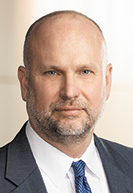
Barnes & Thornburg LLP bucked the trend, hiring 36 summer associates across eight locations in 2021.
Randall Brown, managing partner of Barnes’ Fort Wayne office, said the firm needs more “highly trained, qualified new lawyers” because it recorded its best year ever in 2020. A key to following a smart growth strategy is to attract top law students.
The Barnes model, Brown said, is to bring in individuals who will start and stay at the firm for their entire careers. Summer associates are exposed to a variety of practice areas and given many opportunities, all to see if they “have the chops” to do the work.
“Training lawyers is hard work, but the young lawyers are the lifeblood of a partnership,” Brown said. “We need the young lawyers to be trained in advance and keep that partnership cycle continuing.”
Plunkett Cooney has a similar approach. Indeed, Robert Marzano, the partner who oversees the summer program from the Bloomfield Hills, Michigan, office, started as a summer associate at the firm.
COVID-19 has truncated the program a little. This summer, the firm’s mock oral arguments — with the students demonstrating their appellate skills before a panel of partners serving as judges — have been tabled. Also, the restrictions are preventing students from actually sitting in the courtroom where, Marzano said, they can learn a great deal by observing litigators in action.
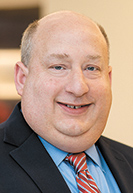
Even so, once the summer associates arrive, they begin their “march to shareholder,” Marzano said. They start building their reputations through the people they meet and the work they do.
Plews Shadley also views its summer associates as its future. The firm participates in the “very competitive process” of interviewing law students from across the country to attract a handful of summer hires who have the ability to do sophisticated legal work and are willing to live in Indianapolis.
Although the firm expects the summer students will become associates after graduation and spend their entire careers there, the reality has been some of the lawyers develop other interests or get poached by other firms. This creates open spots for new associates and, as Braun noted, puts more importance on the summer program to help the firm get an early lock on the best
and brightest.
“One of the things you’re competing for out there is intellectual capital,” he said. “You’re looking for people who have the intellectual fire power to do high caliber work on very complex matters. That’s really the North Star.”•
Please enable JavaScript to view this content.
